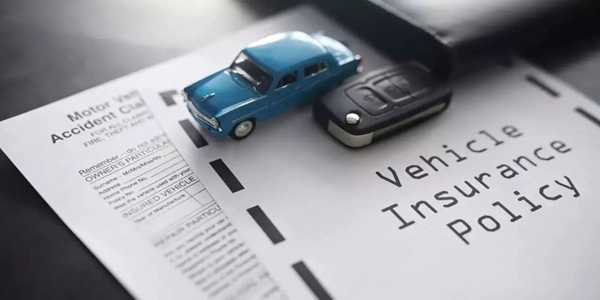Why Your Credit Score Affects Your Car Insurance Rates
Have you ever wondered why your credit score is a factor in determining your car insurance premiums? It’s a question that many drivers don’t fully understand, but it’s one that can have a significant impact on what you pay each month. In fact, your credit score can sometimes play a bigger role in your car insurance rates than your driving record.
If you're curious about how your credit score affects the cost of your car insurance and why insurers consider it, this article will break it down for you. We'll explore the relationship between credit scores and car insurance premiums and give you some practical tips on how to improve your credit score to save on your premiums.
The Link Between Credit Scores And Car Insurance Rates
When you think about what determines your car insurance premiums, the first things that likely come to mind are your driving history, the type of car you drive, and where you live. However, insurers also consider your credit score to be part of the equation. In fact, many insurance companies use what's called a "credit-based insurance score" to help determine how much you'll pay for coverage.
So, Why Do Insurance Companies Use Your Credit Score?
The reasoning behind this might surprise you. Insurers believe there’s a connection between your credit habits and the likelihood of filing a claim. In general, drivers with poor credit scores are statistically more likely to file claims and make more frequent claims. This is because they might face financial stress or have difficulty maintaining their vehicles, which can lead to accidents or mishaps. On the flip side, drivers with good credit scores tend to be more financially stable and less likely to file costly claims.
How Credit-Based Insurance Scores Are Calculated?
Credit-based insurance scores are similar to traditional credit scores, but they are calculated differently and specifically tailored for insurance purposes. Insurance companies use factors from your credit report—like payment history, outstanding debt, and the length of your credit history—to create a score that helps them assess your risk as a driver.
Here’s a breakdown of what typically influences your credit-based insurance score:
Payment History:
How consistently you make payments on time can have a big impact on your insurance score. Late payments or defaults on loans will hurt your score and likely increase your premiums.

Credit Utilization:
This is the ratio of your credit card balances to your total credit limits. High credit utilization suggests that you’re relying too much on borrowed money, which can be seen as a sign of financial instability.
Length Of Credit History:
A longer credit history typically signals that you are more experienced in managing credit, which insurers interpret as a positive factor.

Types Of Credit:
Having a mix of different types of credit (credit cards, installment loans, etc.) can be a good sign that you can handle various types of debt.
Recent Credit Inquiries:
If you’ve recently applied for a lot of credit, this might suggest that you’re struggling financially or taking on more debt, which could make you a higher-risk policyholder in the eyes of insurers.
Why do Insurance Companies Use Credit Scores?
The connection between credit scores and insurance rates might seem unclear at first, but there's a strong rationale behind it. Insurance companies are in the business of assessing risk. The goal is to identify drivers who are less likely to cause accidents and file claims so they can offer them lower premiums.
Studies have shown that people with lower credit scores tend to file more claims, and these claims are often more expensive. As a result, insurers have found that credit-based insurance scores are a reliable predictor of risk. For example, someone with a history of missed payments or large amounts of debt may have financial stress that could lead to accidents or vehicle damage. On the other hand, drivers with good credit scores are often more responsible and reliable, making them less of a risk for insurers.
In fact, according to some studies, drivers with poor credit scores can pay as much as 50% more for car insurance than those with excellent credit. So, it’s clear that your credit score plays a major role in determining how much you pay for coverage.
The Impact Of Your Credit Score On Your Car Insurance Premiums

The impact of your credit score on your car insurance rates can vary depending on the insurer, but it’s generally significant. Here's how different credit score ranges can affect your premiums:
Excellent Credit (750 And Above):
If you have excellent credit, you’re likely to receive the lowest possible premiums. Insurers view you as a responsible driver and a low-risk customer.
Good Credit (700-749):
Drivers in this range still get good rates, but the premiums may be slightly higher than those with excellent credit.
Fair Credit (650-699):
A fair credit score can still get you relatively decent rates, but you may see a noticeable bump in premiums compared to someone with excellent credit.

Poor Credit (600-649):
Drivers with poor credit are considered high-risk by insurance companies, and as a result, their premiums will likely be much higher.
Very Poor Credit (Below 600):
If your credit score is in this range, you may have difficulty finding affordable car insurance. Some insurers may even refuse to offer you coverage, while others may charge you a substantial premium.

Take Control Of Your Car Insurance Costs
Your credit score is just one of many factors that affect your car insurance premiums, but it’s a powerful one. While you might not be able to change every factor that affects your premiums, taking control of your credit score is one step you can take to lower your costs and ensure that you're getting the best rate possible. So, if your premiums seem high, take a moment to check your credit score and start working on improving it today. The effort could pay off in the form of lower insurance rates—and that’s always a win!







